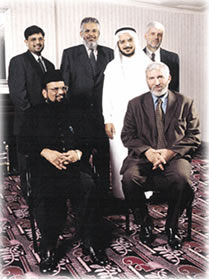There was a certain amount of consternation in the international markets for Islamic bonds last week on the back of an agency article that suggested the bottom was falling out of the sukuk business and that this would impact on the big infrastructure projects where the UAE leads the field increasingly funded by these instruments. Some clarity is needed.
The article – which was picked up round the world and was still repercussing in the local press at the weekend – highlighted the recently depressed state of the sukuk market (issuance down 50 per cent so far this year) and attributed this fall to a ruling in February by Bahraini-based Islamic scholars that the vast majority of sukuk products were not shariah-compliant.
I remember at school learning the fallacy of the argument summed up in the Latin phrase “post hoc, ergo propter hoc” – after the fact, therefore on account of the fact, meaning that because one event follows another chronologically there must be a causal relationship between them. It would be absurd to suggest, for example, that because the Russian invasion of Georgia followed the close of the Beijing Olympics that the latter caused the former. I think the author of the sukuk article fell into that trap.
That was kind of understandable. The Accounting and Auditing Organisation for Islamic Financial Institutions is the closest the sukuk industry has to a central regulator under its chairman Sheikh Mohammad Taqi Usmani, and he did say that up to 85 per cent of sukuk products were potentially non-compliant. As the figures show, there has been a subsequent (though not necessarily consequent) downturn in the market.
But it is not that clear-cut. For one thing, while Usmani and his organisation are recognised authorities on sukuk, advising global financial institutions like HSBCand Dow Jones, they are not the only experts in this field. Other institutions like Citigroup, Royal Bank of Scotland, and Société Générale also have their in-house shariah experts. London and Hong Kong, both of which have ambitions to be global centres for sukuk, retain well-paid shariah advisers too.
Categories
Archives




